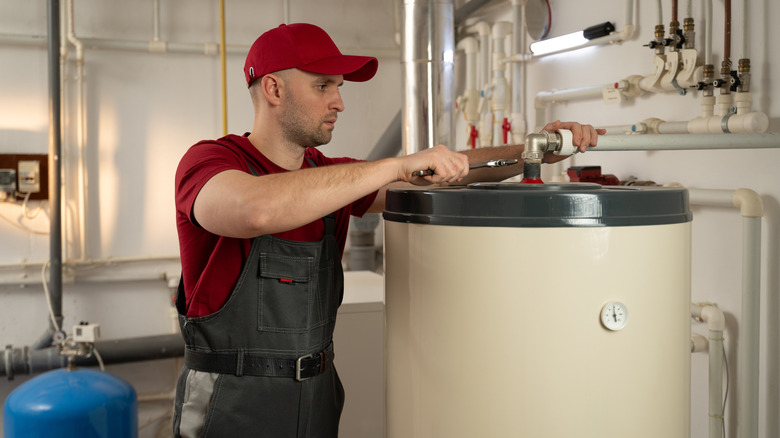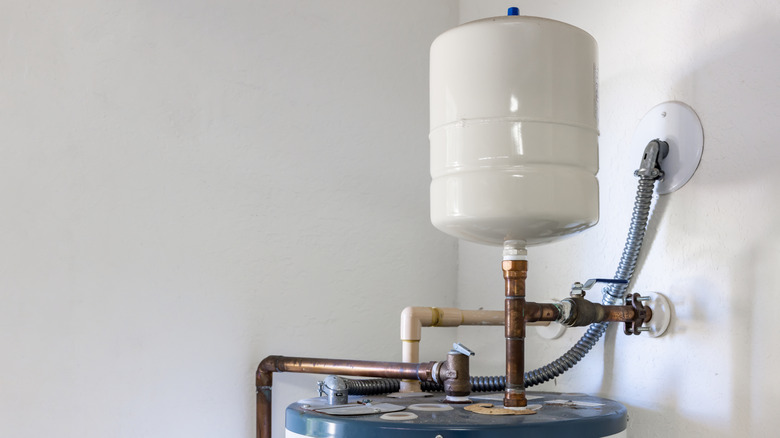What Is A Water Heater Expansion Tank & How Do You Know If You Need One?
If you love a good, hot soak in the bath or a steamy shower, you probably have your water heater to thank. Water heaters are often essential for keeping hot water steadily flowing in your home, especially if you have a washing machine or dishwasher you regularly run. But not every water heater is the same. They vary in fuel needs, tank type, and whether the system requires an expansion tank. So what is a water heater expansion tank? It's a smaller tank that attaches to the cold water supply line of a water heater in order to relieve pressure from thermal expansion. You may need an expansion tank, also known as a pressure vessel, if you have a closed water system or if you have issues with your home's water pressure levels.
Water heaters are part of a residential plumbing system, which can be either a closed or an open system. If your home features an open water system, water within your plumbing can flow to appliances freely, as well as back into the city water main. Conversely, a closed system features a steady, controlled release, and the water lacks the ability to flow back due to a check valve or backflow preventer near your water shutoff valve. Newly built homes or those in drought-prone areas often feature a closed system, and a water heater expansion tank is a critical component of this system. Here's why.
Why you may need a water heater expansion tank
You might remember thermal expansion lessons from high school chemistry class. Simply put, as water heats for your shower or to wash the dirty dishes in the dishwasher, the heating causes an expansion in volume, which can be a problem in a closed plumbing system. The resulting super-high water pressure can cause your water heater tank to swell and swell, potentially leaking. Mounting pressure can damage your plumbing and reduce your water heater's lifespan. In severe cases, your water heater can even explode from too much pressure.
Water heater expansion tanks are a buffer and offer a place for the water to go as it undergoes thermal expansion. They also help maintain a consistent pressure throughout your plumbing system to reduce heavy strain on your appliances and pipes. Their design features a double chamber, with one chamber for air and the other for water.
While previously, open water systems were the norm, today, plumbing codes require water expansion tanks on closed water systems. If you have a tankless water heater, you may not need an expansion tank, though situations vary, such as if you have a closed water system. Expansion tanks last an average of five to 10 years with proper maintenance.

